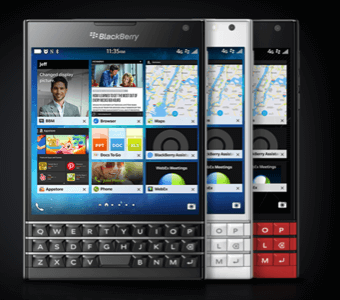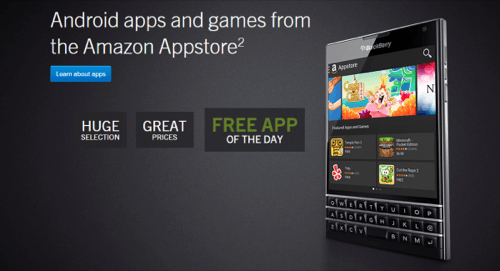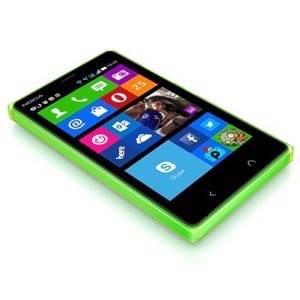BlackBerry may have plans to release a keyboard-slider smartphone powered by Google’s Android mobile OS, according to a report published by Reuters on Thursday. Of the “four sources familiar with the matter,” two say that the device “could come with some of the patented features in its BlackBerry 10 operating system.”
See also: It’s “Go Time” For BlackBerry
If true, then the news amounts to BlackBerry’s admission of defeat. Once a leading smartphone maker, its efforts to reclaim its former glory—from the disastrous touchscreen Storm handset to its recent bid for revival, the keyboard-loving Classic—would officially get marked a “flop.”
While that might bring BlackBerry devotees into the Android fold, it’s hard to see the move making much of an impact on either side. Android can’t help BlackBerry, nor does it need its users. Not that it wouldn’t have some effect: BlackBerry developers could suddenly find themselves forced to switch gears before long.
More Like “LackBerry”

Let’s break this down: If Reuters’ sources are correct, then BlackBerry devices don’t go away. They would just start shipping with Android on board. The latest rumors posit that a slider phone with both a touchscreen and a QWERTY keyboard could be among the first new hardware to come out of this mash-up.
BlackBerry insists that it’s not necessarily killing off its latest software version, BlackBerry 10, at least not entirely. In a statement, the company told Reuters that it “remains committed to the BlackBerry 10 operating system, which provides security and productivity benefits that are unmatched.”
Since BlackBerry already went down the dual-platform route, with its square Passport and retro Classic phones both capable of running Android apps (courtesy of Amazon’s Appstore), the only reasonable assumption then is that the company could just pluck its best bits from BlackBerry 10, while leaving the rest behind.

Those features could include multitasking, its BlackBerry Balance security measures (which separates a user’s work and personal profiles on a single device), or its BlackBerry Messenger (BBM) service, which is already available on Android and iOS devices. But as an early rumor, the story’s still too vague to pin down actual specifics.
If the company strips its OS for parts, that could leave the loyal developers who have stuck with the Waterloo, ON, tech company in a precarious situation. Apps created specifically for BlackBerry’s operating system might not be long for this world, while others—who don’t already have Android versions of their apps—could be forced to go back to the drawing board.
And for what? A change that might not mean much to Android or BlackBerry in the end, anyway.
Following the Nokia Xample
According to IDC, Android holds 78% of the smartphone market. The platform is far beyond needing BlackBerry’s users. The phone maker weighs in with an embarrassing 0.3%.
See also: BlackBerry’s New Square Passport Is A Ticket To Weirdness
The benefits to the struggling phone maker don’t seem clear either. Google’s mobile platform powers so many other devices, a BlackBerry-made Android phone would hardly stand out (except maybe for its weirdness, if the slider/keyboard rumor holds up). But ultimately, it could do more harm to BlackBerry’s brand than good.
There’s one shining example that putting out a half-baked Android smartphone is no path to success: the Nokia X. That device, which features a modified version of Android, was one of Nokia Devices’ last gasps before it was acquired by Microsoft and became Microsoft Mobile in 2014. It reportedly earned 10 million pre-orders in China, but ultimately fell victim to mediocre reviews and waning interest.

Nokia’s earlier push into Android devices looked like evidence of its frustrations with the Windows Phone OS at the time. Microsoft swiftly shut down the project shortly after it bought Nokia’s mobile business.
Now Microsoft’s in the midst of revamping its own software, but it has a key advantage with Windows 10 Mobile: It offers interoperability with other Windows 10 computers and applications. BlackBerry has no such advantage.
If BlackBerry releases an Android phone, it would only do two things: prove that the company finally acknowledges BlackBerry 10’s overall lack of viability as a platform, and put loyal developers with a tough spot.
Images courtesy of BlackBerry; Nokia X image courtesy of Microsoft

















